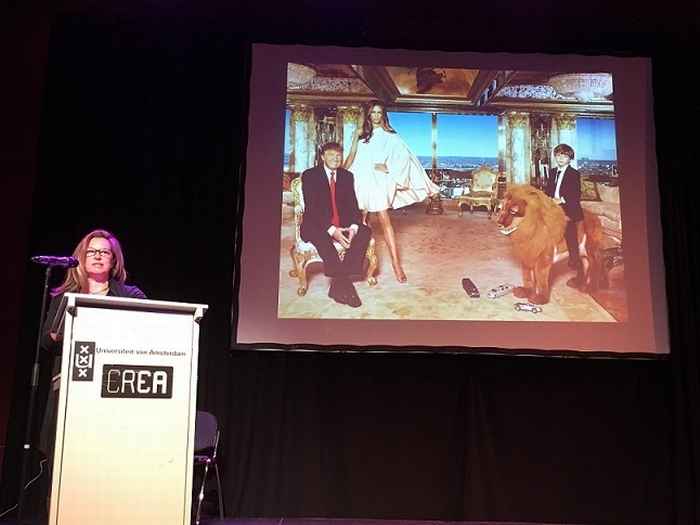‘The Gender of Trumpism: Masculinity, Politics and the American Presidency’.
By Anne Louise Schotel
Trump framed his comment as locker-room talk, but according to Pascoe his behavior exemplifies a conception of masculinity that is characterized by dominance. Pascoe states that dominance – dominance over women and over less masculine men – lies at the heart of what the global west thinks of as masculinity. Trumps portrayal of this dominant masculinity is painfully obvious, but the American and global political left opposing him also employ this discourse, resulting in what Pascoe calls a contest of masculinity. She refers a headline in the Guardian to illustrate this contest, which stated: “Are you a Trump man or a decent man? Time to choose[1].” In fact, ‘decent men’ were quick to publicly denounce Trumps misogynistic statements: professional athletes launched the hashtag #notinmylockerroom on Twitter and men attended the women’s marches organized to protest Trumps presidency.
Comedian Stephen Colbert, host of the Late Show, addressed Trump as follows: “You’re not the POTUS. You’re the BLOATUS. You’re the glutton with the button. You’re a regular Gorge Washington. You’re the presi-dunce, but you’re turning into a real prick-tator. (…) In fact, the only thing your mouth is good for is being Vladimir Putin’s cock holster. Your presidential library is going to be a kids’ menu and a couple of Juggs magazines. The only thing smaller than your hands, is your tax returns, and you can take that any way you want”[1].
Pascoe argues that in this example, Colbert uses the same sexualized and emasculating language that causes public outrage when it is used by Trump. Instead of protesting Trump, Colbert actually engages in a contest of masculinity. In this way, reactions against Trump perpetuate the inequality that results from the discourse of dominance. This discourse qualifies masculinity as displaying power over others, by emasculating those that are deemed less masculine and by normalizing gendered and sexual violence.
Unfortunately, Trumps rise to power and the movements opposing him both show the tenacity of inequality in gendered discourses. According to Pascoe, opposition to the discourse of masculinity as dominance should not focus on good or bad men, but instead investigate the mechanisms by which people are rendered good and bad. The focus may then shift from what constitutes ‘real’ masculinity to unpacking the gendered patterns that reinscribe inequality.
[1] https://www.youtube.com/watch?v=HaHwlSTqA7s
[1] https://www.theguardian.com/commentisfree/2017/apr/10/trump-man-aggression-towards-women-us-election
